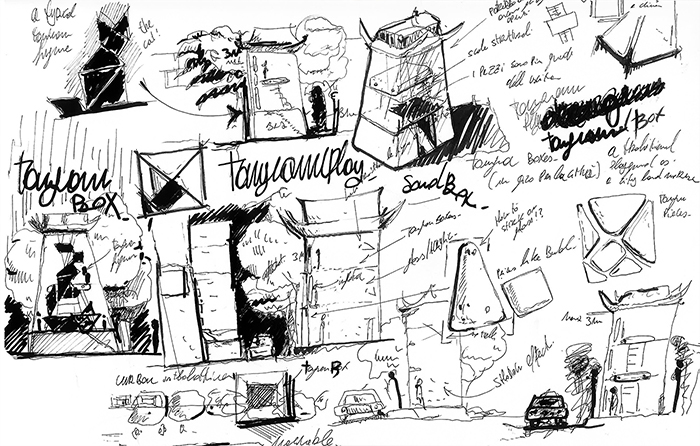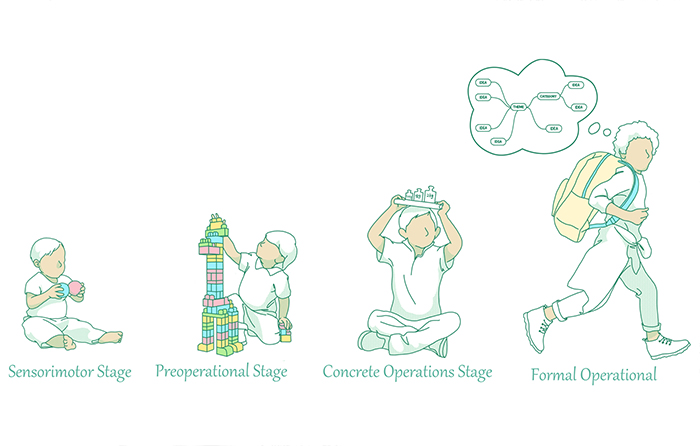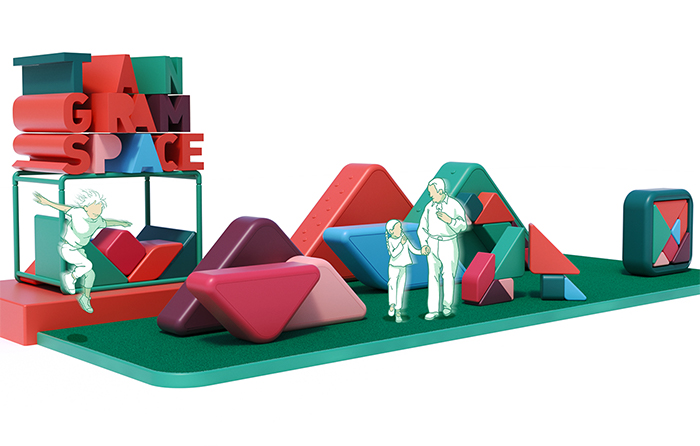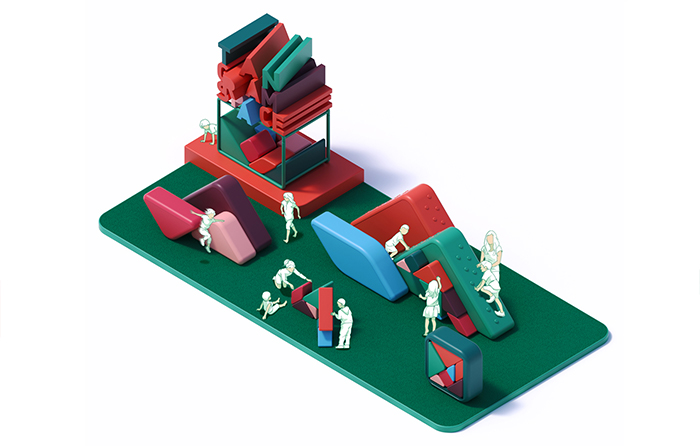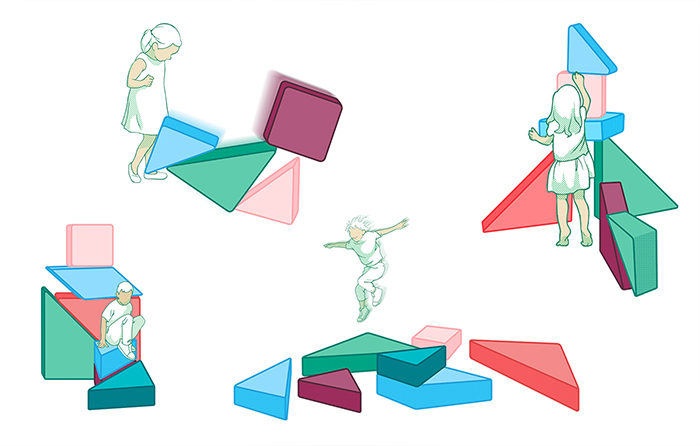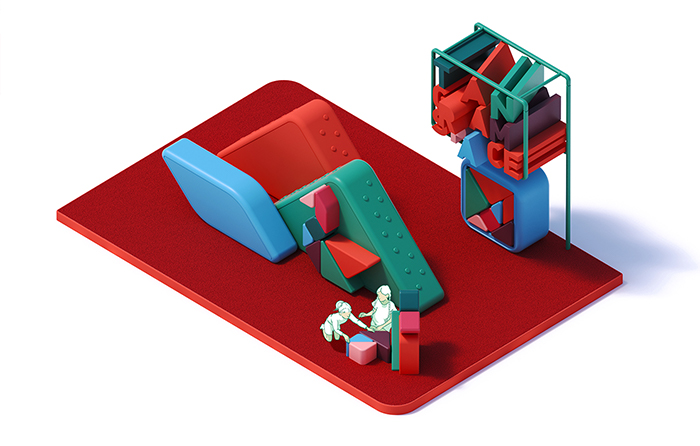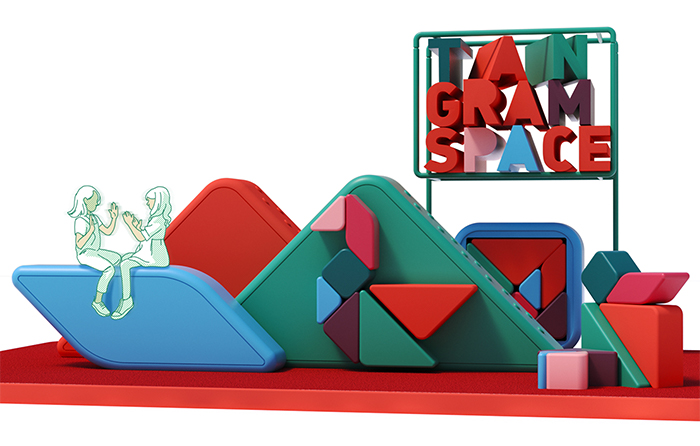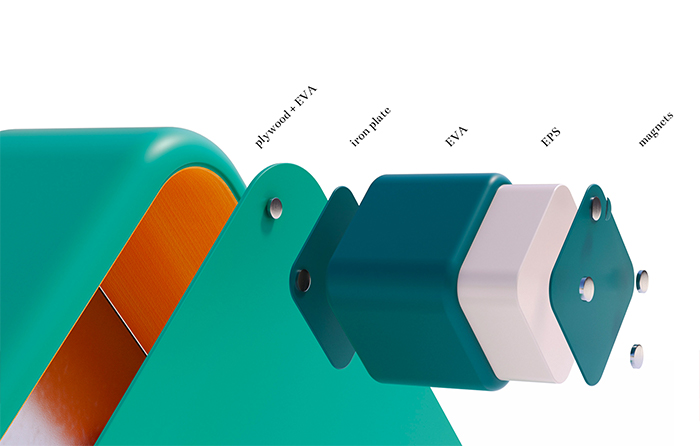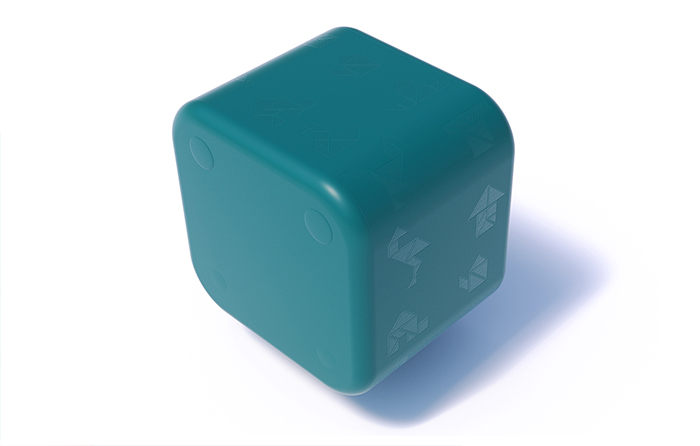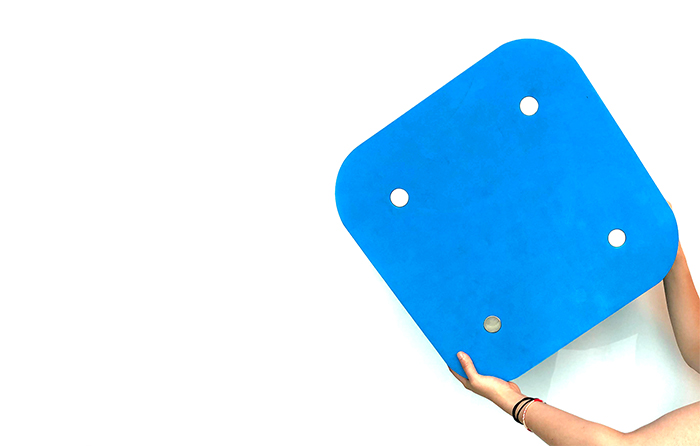The Tangram Space
An experimental playground for children in Wenzhou
June 2021 - Wenzhou, China
Research Project
Granting Institution: Wenzhou Science and Technology Bureau
Playgrounds are essential to educating children with both conventional and creative methods, and nowadays, they are assuming new functions and meanings while becoming protagonists of contemporary design challenges. The Tangram Space is the outcome of practice-based research conducted by Edoardo Rizzuti and Maurizio Vrenna, faculty members at the Michael Graves College of Architecture and Design, Wenzhou-Kean University (Zhejiang, China). It is the concept of an innovative modular hub for conveying messages and emotions to youth, coupling learning with direct experience and addressing children’s psycho-motor needs (following the guidelines of well-known Piaget’s theory of cognitive development). The designers have used the tangram – a fascinating and highly educational local game that divides a square into seven pieces – to evoke Chinese culture and tradition. The game requires cognitive effort to recombine elementary geometric shapes into an immense number of fantastic configurations. The Tangram Space uses the potential and the scalability of the tangram to create a playground that works both for psycho-motor activities and as a sandbox. The extended possibilities of the tangram geometry in the three-dimensional space create new ludic scenarios pushing farther the well-known figure-based game, although Tangram Space host the classic figure composition activity. Thanks to the lightweight EVA magnetic parts, kids can create suggested configuration which foster collaborative playing adding mystery and unpredictability to the layout without prescribing a correct way to play.
Acknowledgments: Wenzhou Science and Technology Bureau (Granting Institution); Huang Yaoyao (Design Advisor, Wenzhou-Kean University); Anna Viktorovna Solovieva (RUDN University, Scientific Advisor); Zhang Qi (Illustrator); Ye Chengqian (Project Manager, Wenzhou-Kean University); Pan Yangyang (Purchasing Manager, Aisino); Zhu Shengyong (Factory Manager, Zhejiang Yiwei Ai Toy Co., Ltd); Zhu Xiangxiang (Office of Research and Sponsored Programs, Wenzhou-Kean University).
